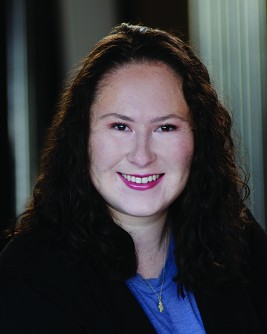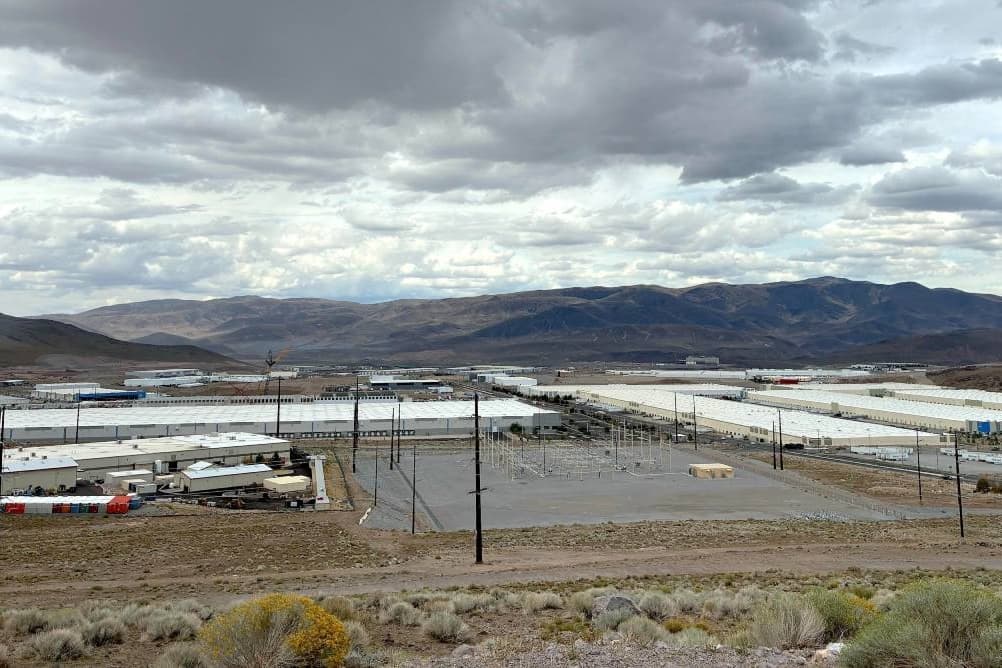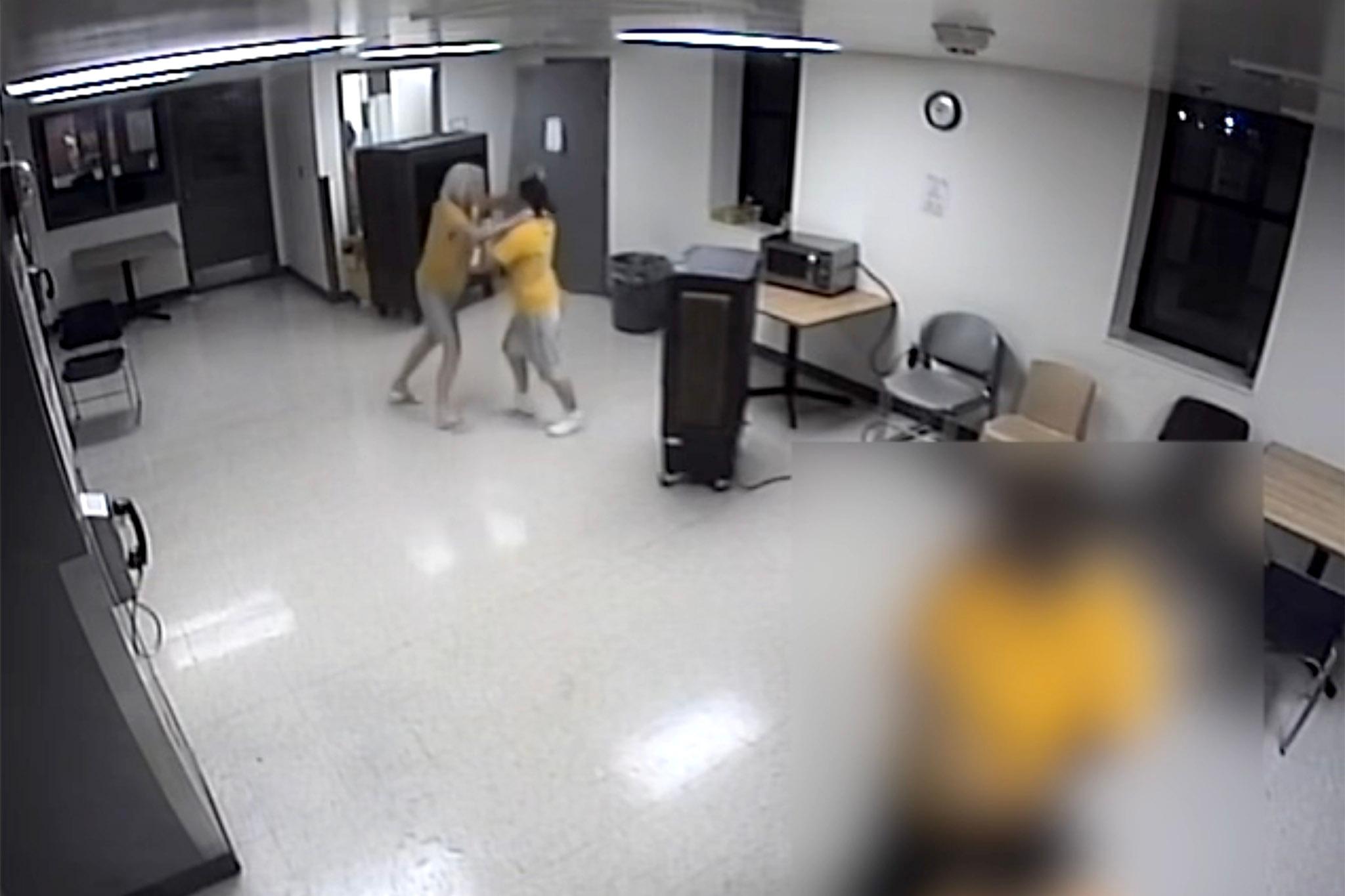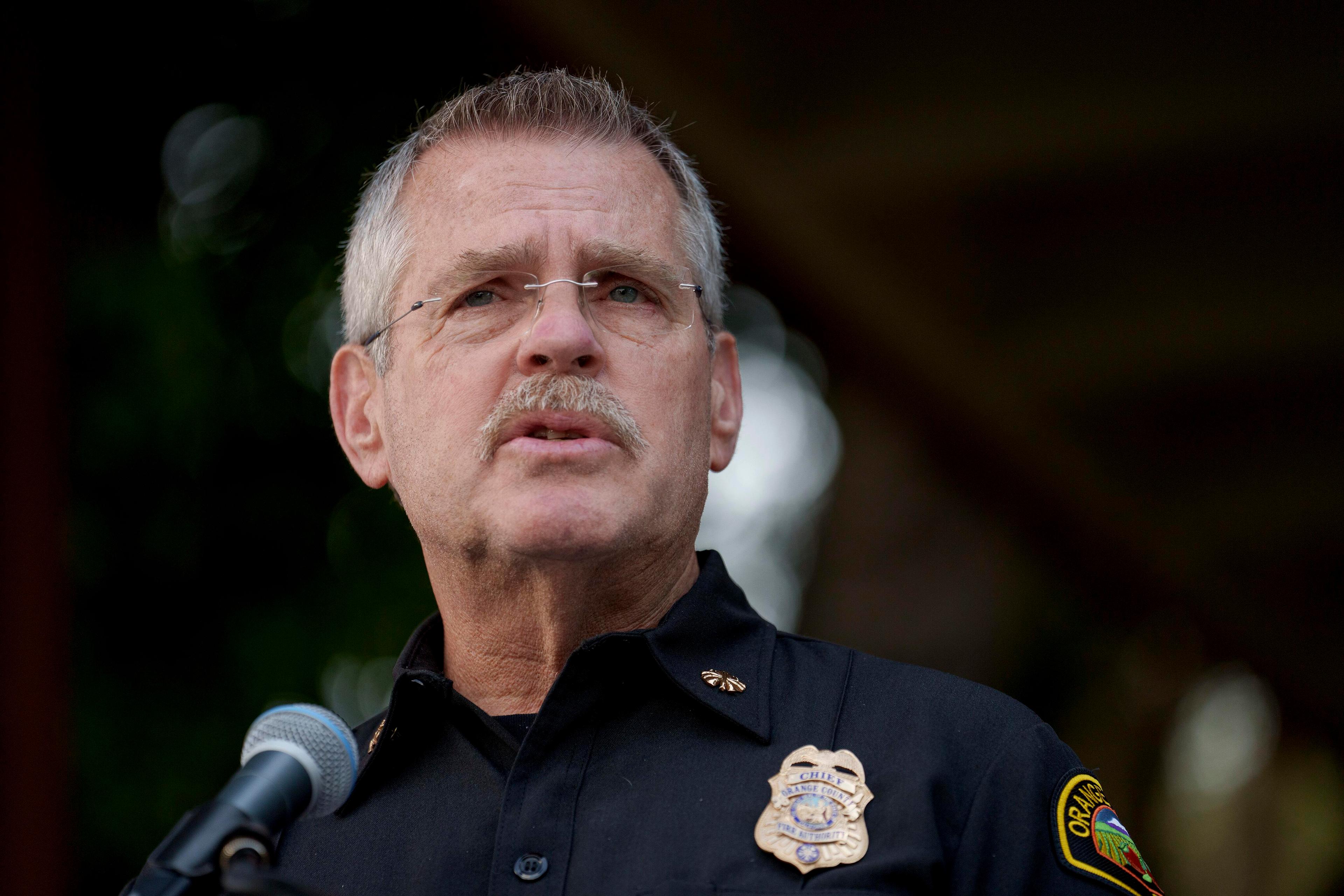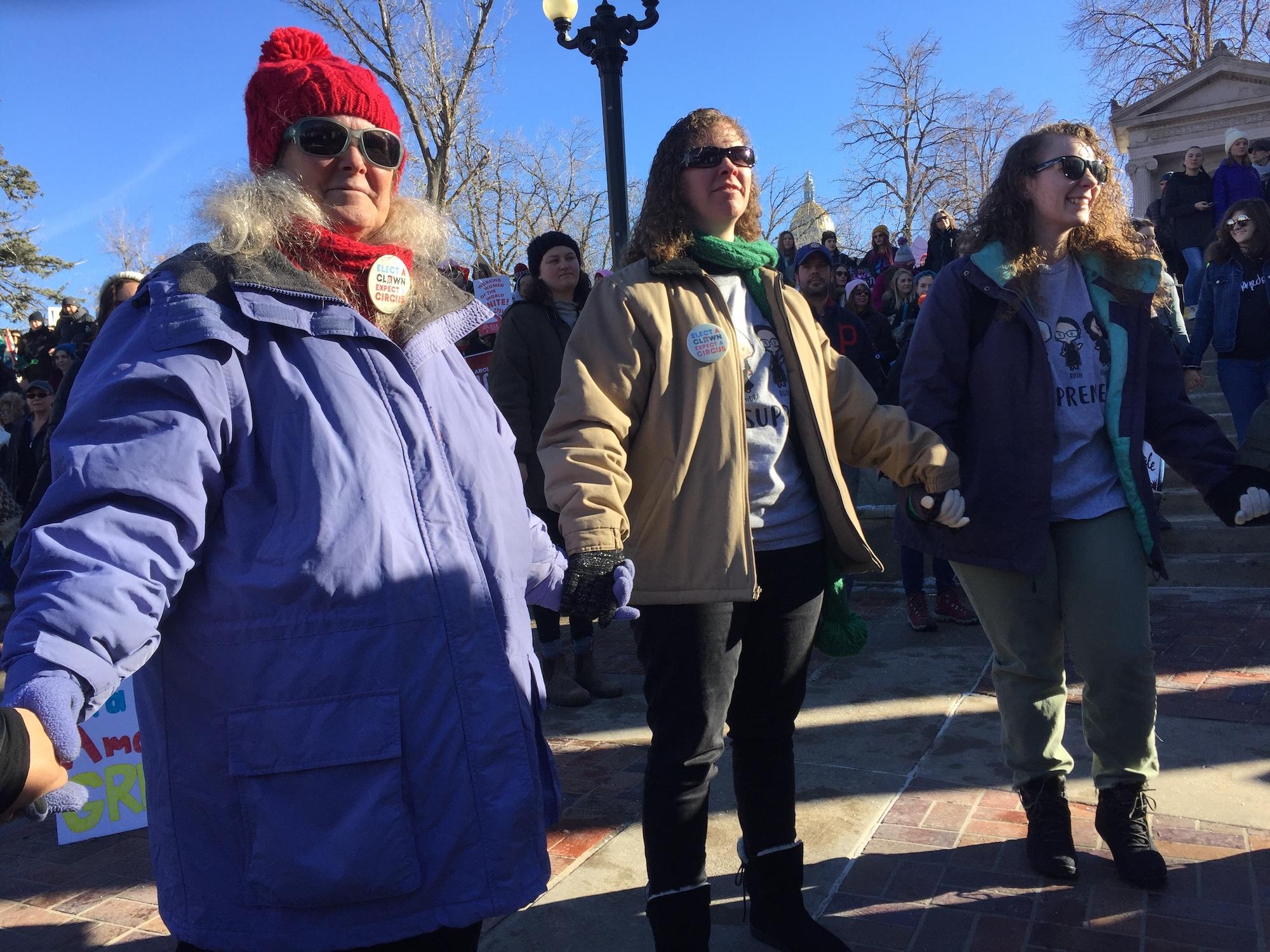

In January 2017, more than 100,000 people marched in Denver for women’s rights. The movement has faced setbacks. As questions surround the direction of the national group, a smaller contingent of people set out across Colorado Saturday morning to continue the campaign for equal rights and wider acceptance for all people.
Inclusion and speaking out against injustice became early themes of the Denver march Saturday, as a speaker at a pre-march rally in Civic Center Park asked all those who had experienced sexual violence or knew someone who had to raise their hands. At least a hundred hands rose.
“I’m marching today because I am a survivor of sexual assault and because I am [mad] about the direction this country is going in,” marcher Ciarra Junsch said. Saturday was Junsch’s first women’s march. She came downtown after a 12-hour shift at work.
Issues on protesters’ minds included reproductive rights, ending the partial government shutdown, impeaching President Donald Trump, empowering women, and, the march’s theme, unity.
Marches were planned across the state Saturday. Organizers initially estimated the Denver crowd size to be about 13,500, but later declared 80,000 people attended the march and rally Saturday morning. There was no independent estimate of the final crowd size. Organizers in Montrose said more than 500 people turned out, and places like Pueblo and Grand Junction also held their own events.
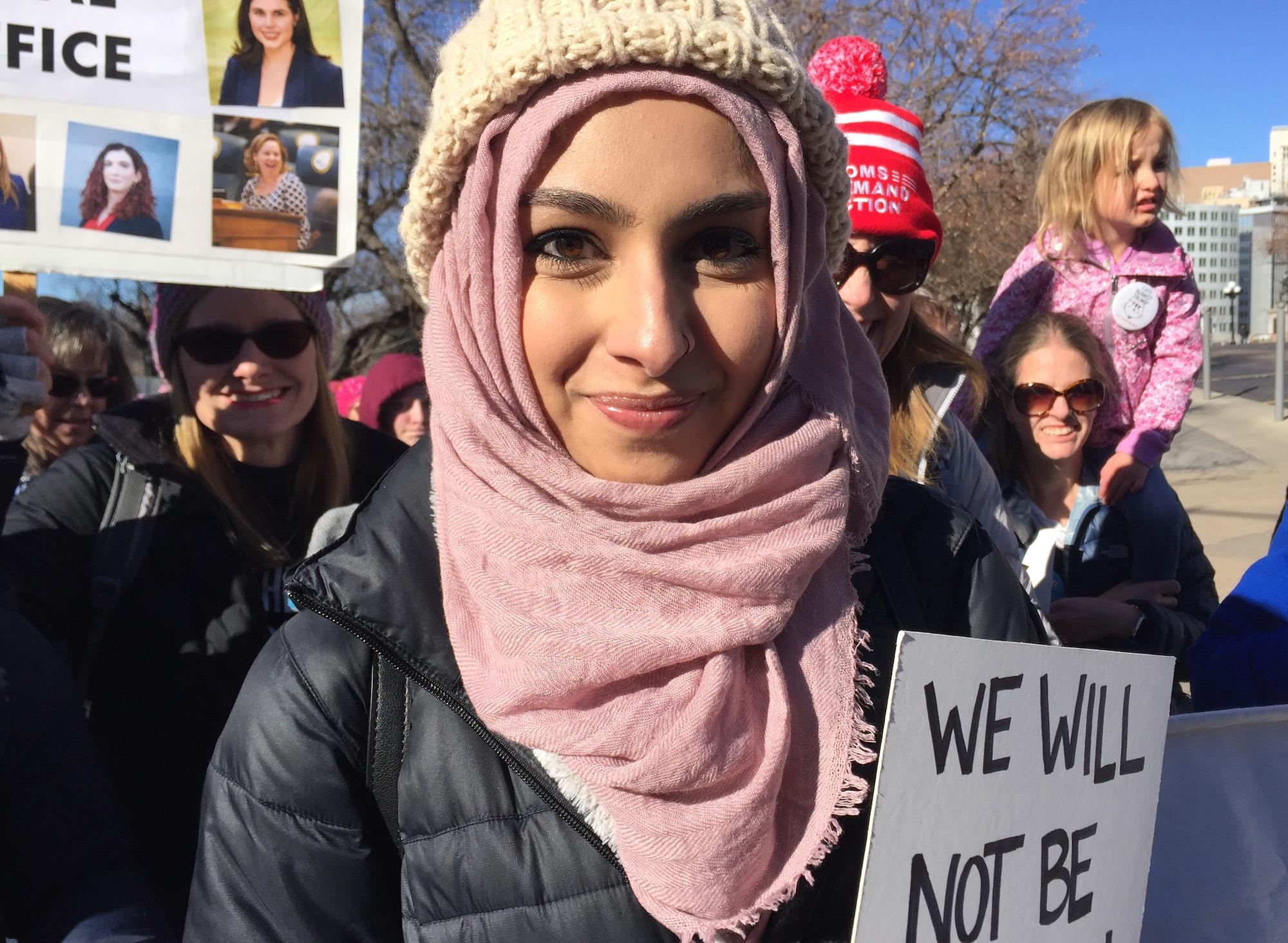
“When there’s a lot of hate and prejudice going around, seeing the support from others and people you didn’t know about before standing up for you, it makes you feel good,” said Suzie Amin, a digital design student, at the Denver march. “It makes you feel empowered to keep going and stand up for what you believe in.”
Organizers in Denver said Saturday they were standing up for oppressed people across the state.
“We’re here today to march in solidarity under the banner of anti-oppression,” said Regan Byrd, an organizer with the Denver march and rally emcee. “ We’re going to continue to talk about how do we dismantle oppression in Colorado. That’s what we’re here to talk about today.”
As women’s marches across the country struggled with inclusion, Denver organizers said they worked hard to make this year’s march as inclusive as possible.
So when the Denver movement became a nonprofit in September 2018, the organization changed its name to Womxn’s March Denver, swapping the “E” in women to an “X.”
“The ‘X’ represents not just women in the binary sense but it represents anybody that has been oppressed because of their gender,” said organizer Angela Astle. “And that's the statement, with the ‘X’, that we're creating a safe space for our trans community and our trans sisters to come and join us.”
The first Women’s March after the inauguration of President Trump in 2017 was too homogenous and not welcoming to the transgender community, Astle said.
Women who have been to all three marches said that while the number of protesters has dwindled over the years, people attending the march now are now less timid and more organized.
The pre-march rally began with a Native American invocation led by Debbie Howell of the Pawnee Nation of Oklahoma. Howell is a a member of the Sisseton-Wahpeton Oyate tribe of the Lake Traverse Reservation of South Dakota. The rally included transgender, nonbinary, disabled, immigrant and activist speakers.
Mayor Michael Hancock, City Council member Robin Kniech and Denver mayoral candidates Lisa Calderón and Kalyn Rose Heffernan also attended.
“While I love to hear people talk about intersectionality, so many times, the disability community is often left out of that conversation,” Heffernan said. “When we create a world that is accessible for people with disabilities, we create a world that’s accessible for everyone.”
Every person had their own reason for marching.
Chris Brownlee said she is unhappy with the cost of education and the cost of child care. She marched with her son Tristan.
“I have a 7-year-old son and he needs to know that women are powerful things,” Brownlee said. “He’s going to see that women can make a difference”
Tameya Turner, 16, and half a dozen of her classmates from Gateway High School in Aurora chanted loudly as they walked down 13th Street. She admitted it was a school project that got her to the march.
“But now that I’m here, I love it,” Turner said. “I’m supporting women’s rights and equality. It’s inspiring how everybody is out here together, uniting as one.”
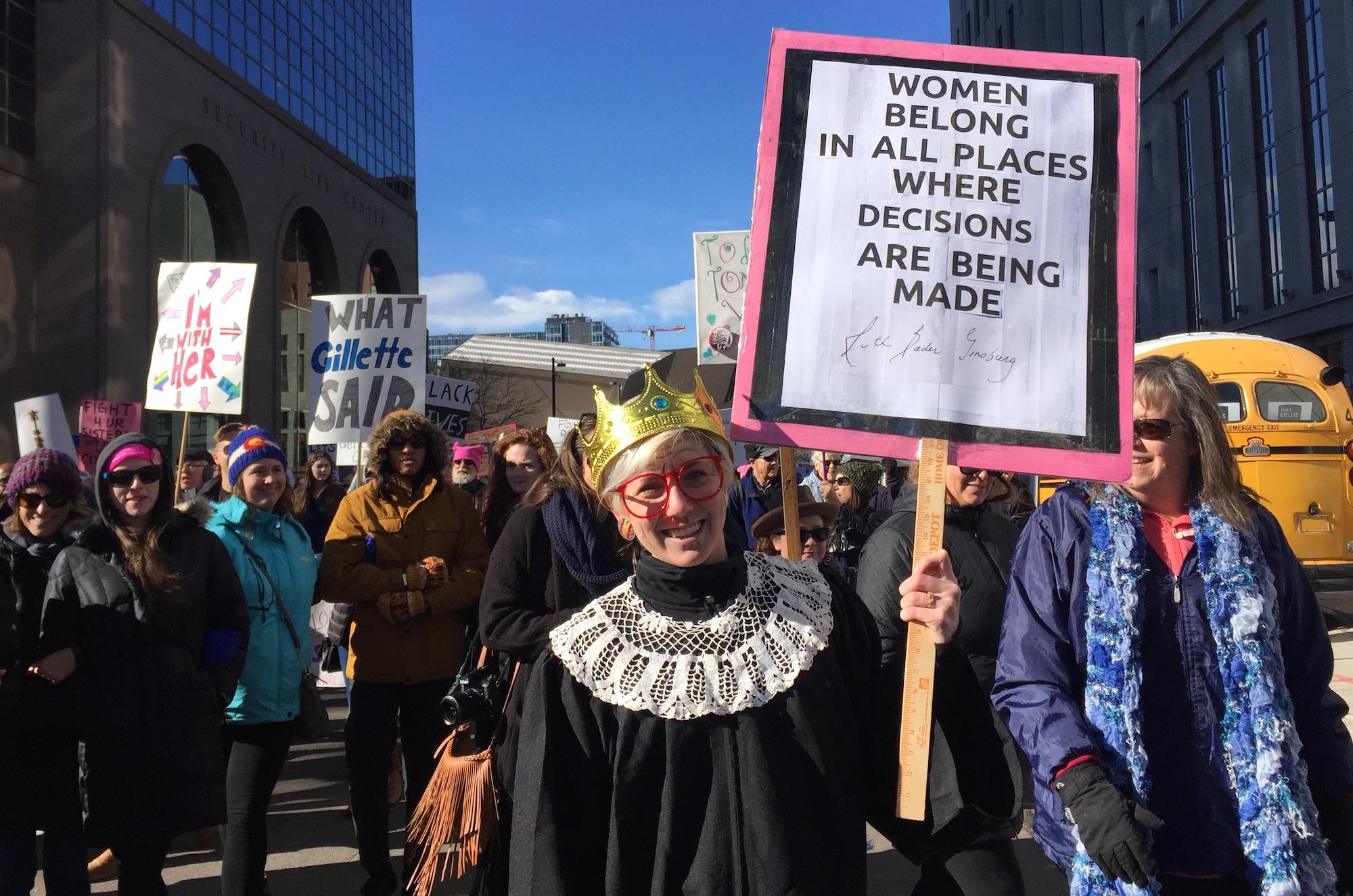
Laurie Finnegan was dressed as Supreme Court Justice Ruth Bader Ginsberg.
“It’s a really great opportunity to get together with like-minded people and just make all people in government know that we are still here, we’re still nasty, we’re still voting, we’re still not happy,” Finnegan said. “We’re not going to stop until the rights of everyone are respected. We’re not satisfied with this cabinet and the decisions they are making.”
